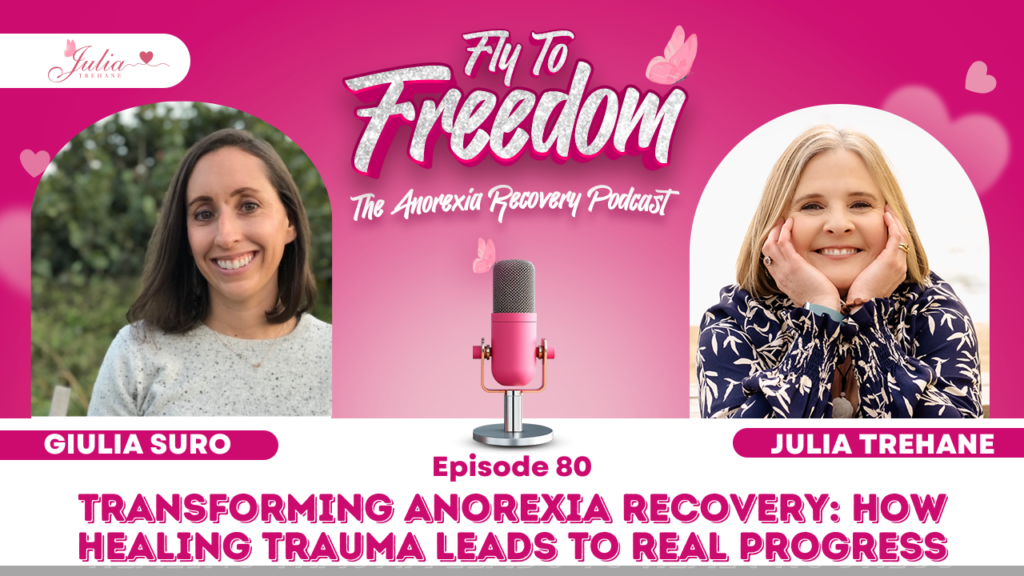The Hidden Link Between Trauma and Eating Disorders: How Unresolved Trauma Fuels Anorexia
Anorexia nervosa and other eating disorders are not just about food or weight control—they often have much deeper roots, tied to unresolved trauma. Trauma disrupts our body’s ability to regulate stress, leaving people searching for coping mechanisms, and for many, disordered eating becomes a survival tool. In this blog, I’ll explore the complex relationship between trauma and eating disorders, uncovering the science behind this link and why a trauma-informed approach is key to healing.
Trauma and Anorexia: A Survival Mechanism
When we talk about trauma, we’re not just referring to life-threatening events. Trauma can come from many places: emotional neglect, childhood adversity, or even repeated invalidation from caregivers. For people who develop anorexia, trauma has a sneaky way of rewiring their emotional and physical responses.
Psychologically, anorexia provides a sense of control—a way to navigate overwhelming emotions when the world feels too much. Restricting food, or engaging in disordered eating behaviors, offers a form of relief and a false sense of safety. The feeling of control over food is a substitute for control over trauma or emotional chaos. This behavior may have served a purpose in the past—helping you survive—but in the long run, it becomes destructive. Studies show that about half of individuals in higher care for eating disorders have a history of trauma.
In my blog post on emotional discomfort, I explain how handling emotions plays a significant role in anorexia recovery. Addressing trauma is about facing those emotions and creating healthier ways to cope.
The Nervous System and Eating Disorders
At the core of the trauma-eating disorder connection is the nervous system. When trauma occurs, especially in childhood, it can disrupt the way the nervous system processes stress. There are two common responses to trauma: hyperarousal (feeling constantly anxious or “on edge”) or dissociation (feeling numb, disconnected, or checked out). These states directly fuel disordered eating behaviors.
In a hyperaroused state, the body feels chaotic and out of control. Restricting food can be a way to quiet that inner turmoil. On the other hand, dissociation leads to a disconnect from the body’s physical and emotional needs, making it easy to ignore hunger signals or numb out through binging. This emotional numbing through food creates a vicious cycle that strengthens disordered eating behaviors.
There’s growing research on how trauma hijacks the body’s stress response, which is linked to higher rates of eating disorders. Trauma can affect how the brain processes fear and emotions, which is where many eating disorder behaviors emerge as coping strategies. For more on how this plays out in recovery, check out my blog on fear and anxiety in eating disorder recovery.
Interoceptive Awareness: Relearning to Feel Hunger and Emotions
One of the most significant impacts trauma has on the body is the disruption of interoceptive awareness—our ability to feel and interpret internal signals like hunger, fullness, and emotional states. Many people with anorexia struggle with identifying these sensations. Trauma clouds the brain’s communication with the body, making it difficult to recognize hunger or even emotional pain.
Without this interoceptive awareness, the line between physical hunger and emotional hunger becomes blurred. People with eating disorders often lose the ability to respond to their body’s natural cues, leading to further disconnection and reliance on restrictive eating. Trauma exacerbates this disconnection, making it feel impossible to understand what the body needs.
By retraining this awareness, those in recovery can begin to recognize their body’s true signals. Part of this involves learning to sit with uncomfortable emotions, rather than turning to food for control. If you’re curious to learn more about body cues, take a look at my post on body image vs. body function.
Why Trauma-Informed Care is Crucial in Anorexia Recovery
The reality is, traditional treatment for anorexia often focuses solely on food behaviors. Yes, weight restoration and nutritional support are essential, but without addressing the trauma driving these behaviors, the chances of relapse remain high. Trauma-informed care acknowledges that disordered eating behaviors are survival strategies. They aren’t the problem—they’re a symptom of a deeper issue.
By focusing on trauma, we get to the root cause. It’s not about “fixing” someone or forcing them to stop behaviors they rely on—it’s about creating a safe space to heal emotional wounds. This holistic approach helps to transform those old coping mechanisms into healthier ways of dealing with stress, anxiety, and emotional pain.
When we address the trauma alongside food-related behaviors, we offer individuals a path to full recovery. This is something I cover in my podcast episode with Dr Giulia Suro on trauma, which explores why tackling both trauma and eating disorder behaviors together is essential.
Finding True Recovery from Anorexia
Recovery from anorexia is more than just managing eating behaviors—it’s about healing from the trauma that lies beneath them. Trauma-informed care provides the tools needed to replace harmful coping mechanisms with compassion and healthy emotional regulation. It’s not about fixing yourself, because you’re not broken. It’s about understanding where your anorexia came from, why it developed, and how to move forward in a healthier, more empowered way.
I recorded this fantastic podcast with fellow recovery coach and clinical psychologist Dr Giulia Suro on this subject. Have a listen by clicking the link
In my Gold Standard 1:1 Coaching, I help clients uncover the root causes of their anorexia. Together, we address both the trauma and the eating disorder, creating a path toward lasting recovery. We work on rebuilding interoceptive awareness, emotional resilience, and a compassionate relationship with food and the body.
You can also sign up for my Daily Love email series, in which I sed you a daily mantra or affirmation. These mantras help ground you in your recovery journey and provide daily encouragement. You can also follow me on Instagram @juliatrehane for recovery tips and inspiration.
Next Steps
If this blog resonated with you, take the next step toward freedom—I’m here to help you. For my gold standard 1:1 coaching, reach out to me here:
I also offer lots of free resources: sign up to receive daily mantras and my free recovery guide when you join my email community. You can do this here.
Follow me on Instagram for lots of helpful tips @juliatrehane.


